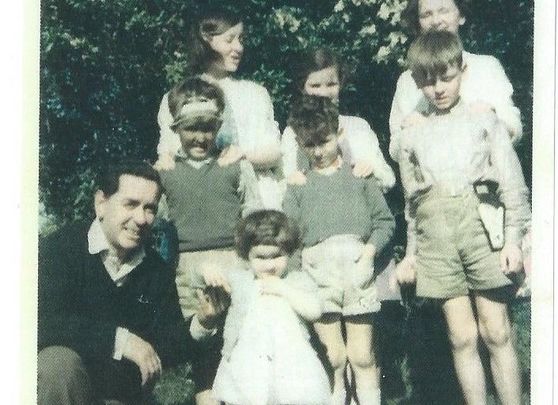Jean Farrell looks back on the incredible mental agility of Irish children at school in the 1950s from arithmetic to the Irish language.
In Ireland of the 1950s, many people left school at fourteen years of age. They went to America or England to find work. The education they received in Ireland was of a very high standard.
By the time we left national school, we had a great grasp of English, Irish and arithmetic.
Consider the sums we could do. I came across examples of these lately:
1. A man bought a house for £1,750. He let it for £120 per year but had to pay out £41 5s for the year in ground rent, rates, etc. What was his percentage profit on his outlay?
2. Make out a shop bill for the following:
- 4½ lb. butter at 2s. 8d per lb
- ¾ stone of sugar at 7d per lb
- 42 bottles of milk at 5½d each
- 45 eggs at 4s 6d per doz
- ¼ lb. tobacco at 1s 10½d per ounce.
3. Estimate the yield of turnips from a field of 4ac. 3rds. 16 sq. per. at the rate of 15 tons per acre.
In order to do these types of sums, we had to learn lists of weights and measurements, which I can still recite: "Sixteen ounces one pound, fourteen pounds one stone, etc.
Some further examples were:
Suits in a Dublin shop were marked in dollars for American visitors. One suit was marked “13 guineas or $38.22.” What was the rate of exchange?
An advertisement read: “Carpenters wanted. 3s 2½d. per hour + 6d. per day tool money + 38s 6d per week country money.” If a carpenter, on these terms, worked on 6 days a week for a total of 44 hours, what would he earn in 13 weeks?’
Isn’t there almost a social history in some of these? What was "country money"? I came across more lessons we learned long ago, lessons about Adam and Eve, as well as geography, Irish, and English:
THE FIRST SIN: God told Adam that he and Eve might eat the fruit of every tree in the garden, except of one, and that one they must not touch. This was very little to require, and had our first parents obeyed God they would have lived forever and would have been happy in this beautiful garden. But one day the devil tempted Eve to eat the forbidden fruit, and told her that if she ate it she would become as wise as God Himself. Eve was foolish and wicked enough to believe this, and in spite of God’s command, she ate the forbidden fruit. Then, not satisfied with sinning herself, she coaxed Adam to eat the fruit also, and in this way sin was brought upon the earth.’ (Blame the woman!)

Love Irish history? Share your favorite stories with other history buffs in the IrishCentral History Facebook group.
COMPOSITION: A day spent working, gathering blackberries.
ENGLISH: Say whether the words in italics are adjectives or pronouns: 1. Give me that book: leave this where it is. 2. This pen is better than that. 3. One day you will be one of the world’s workers.
In Sister Dymphna’s fourth class we had geography just after lunch time. For our homework we had to learn the towns in the counties (see below) and say what was produced in each town. I recall clearly reciting these in my head, as I ate my dinner, while "The Kennedys Of Castleross" was on the wireless. Woe betide us if we didn’t know them:
Westmeath (An Iar – Mhidhe)
Mullingar (An Muileann Cearr): Tobacco, woollens, livestock mart, creamery.
Athlone (Áth Luain): Woollens, cotton, linen.
Galway (Gaillimh)
Galway (Gaillimh): Fisheries, woolens, marble, millinery, agricultural implements. University College.
Tuam (Tuaim): Sugar factory.
Ballinasloe (Beal Atha na Sluaighe): Cattle-, horse-, and sheep fairs. Boots and shoes.
I found all these examples in a book called "Favourite lessons we learnt in school," written by Thomas F. Walsh
We learned ‘off by heart’ – ‘Cad a dhéanfá dá mbeadh do rothar pollta?’ (What would you do if your bike had a puncture?) We knew our tuiseals and aimsirs (verb tenses) inside out. We learned "liom, leat, leis, leí, linn, libh, leo" (with me, with you, with him, etc,.) and much, much more.
Most of my teachers were kind and encouraging. I was bright and studious with a mother who helped us all with our homework. I was lucky. Pity the poor, slow-learner who couldn’t grasp any of this. There were no resource teachers or, indeed, any understanding of pupils with special needs when we were in national school.
There were some very misguided, bad teachers who thought that knowledge could be ‘beaten into’ young children. “Ah, sure it didn’t do us any harm,” I heard a man once remark. He is very wrong. I know adults in their 60s who, after a few drinks, regularly relive their fear and dread of certain teachers, with great suppressed anger and rage. Subconsciously, we absorb the landscape of our childhood and it colors the rest of our lives. For some, their confidence in themselves was destroyed forever by these teachers.
Nowadays, school in Ireland is very different. My grandson, aged seven, can’t wait to return to his new class in September. He enjoys learning and so do all his classmates. And teachers enjoy teaching, too.
* Originally published in 2016, updated in Sept 2023.




Comments